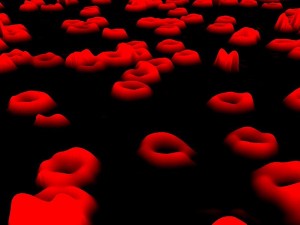MONDAY, 26 MARCH 2012
The proteins responsible for two of these lesser known blood types, “Langereis” and “Junior”, have recently been identified. Ballif and colleagues at the University of Vermont used antibodies against Langereis and Junior blood antigens to isolate and subsequently sequence the proteins, ABCB6 and ABCG2, which distinguish these blood groups from others.Aside from being able to impress your friends with your expert knowledge, there are important reasons to be aware of these less familiar blood groups. Blood transfusions rely on a match in blood type between the donor and the recipient. For example, those with ‘Junior negative’ blood do not carry the “Junior” blood protein, ABCG2; if they are given blood containing this protein, their body will react against it, producing antibodies and effectively attacking itself.
Whilst rare in Britain, Junior and Langereis negative blood types are common amongst certain Japanese populations and some European Romany groups. Identifying and checking these blood types prior to transfusion or organ transplant could therefore be beneficial for thousands of people around the world. Moreover, these same proteins have also been associated with resistance to certain anti-cancer drugs; research into these effects could potentially help to improve cancer treatment for people of all blood groups.
With an expected 10-15 blood proteins still to be discovered, no blood transfusion can ever be a completely guaranteed match at present. However, Ballif’s recent discoveries bring us closer to achieving this goal, and have the potential to save many lives.
Written by Milly Stephens
DOI: 10.1038/ng.1069

